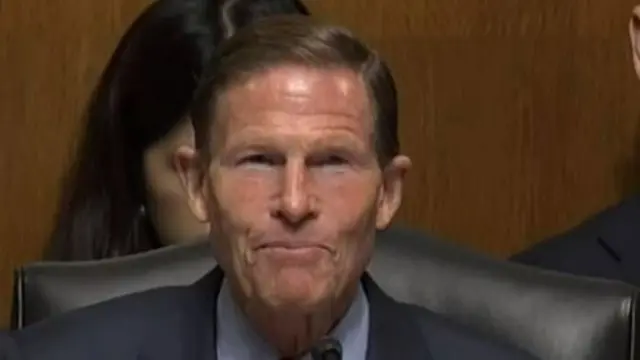Thanks for joining uspublished at 18:51 BST 16 May 2023
 Marianna Brady
Marianna Brady
Live reporter, Washington DC
The US Senate committee hearing about the impacts of artificial intelligence has come to a close, and we’ll be ending our live coverage.
Today's reporting was brought to you by our technology and live teams in San Francisco, Washington DC, and the UK.
Click here to read more of the BBC's coverage on AI.




